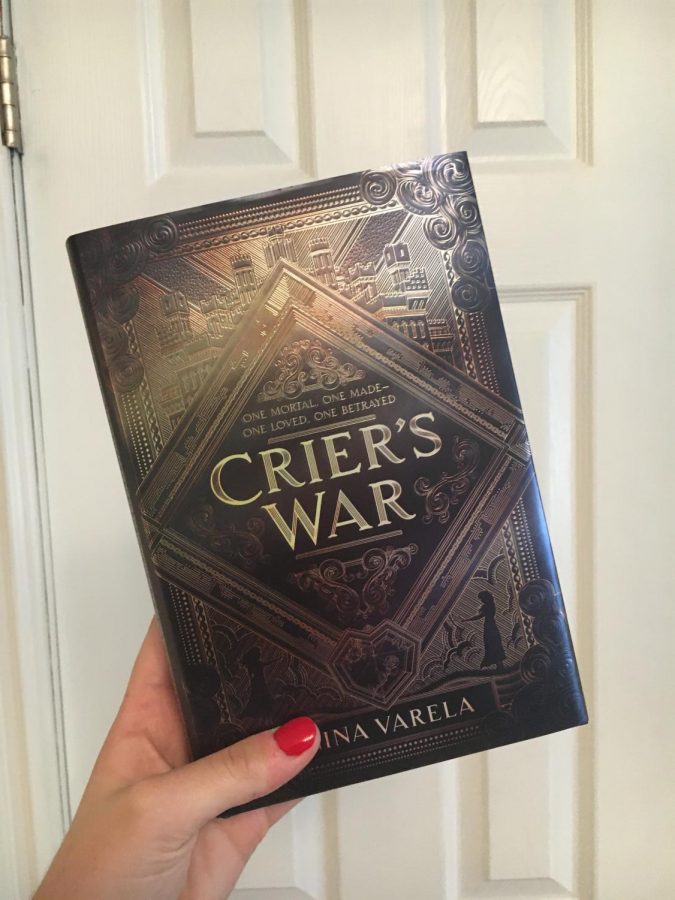Book Review: ‘Crier’s War’
“Crier’s War” is one of many books that highlights a central lesbian romance throughout the plot.
August 27, 2020
When it comes to LGBT fantasy, it’s hard to find books that deliver—especially when it comes to books about queer women. That’s why I was so excited to pick up Crier’s War, the dystopian fantasy book by Nina Varela with a central lesbian romance.
Crier’s War is a story about Ayla, a human servant of the Automae—a race of artificial humans that have become the ruling class. After her family is murdered by Automae, Ayla plans to kill the sovereign’s daughter, Lady Crier.
When a chance encounter sees her becoming Crier’s lady’s maid, Ayla thinks she’ll finally be able to take her revenge. Crier, though, isn’t what Ayla expected. Sweet, gentle, innocent Lady Crier isn’t the monster Ayla has always imagined, but how can she justify loving the daughter of the creature that killed her family?
I wanted to love Crier’s War. I was drawn in by the promise of a queer enemies-to-lovers slowburn between two women set in a rich, new fantasy world, which basically checks all my boxes. When it comes to the book, though, I have regrettably mixed feelings.
The concept of Crier’s War is enticing—human versus something else, something Made. I loved the idea of Crier’s character, an artificial creation that is the only one of her kind with the ability to feel passion; and of Ayla, the angry orphan who longs for revenge.
However, I struggled to connect with the characters themselves. Both of them felt one-note and underdeveloped. I found their promised slow-burn rushed and unconvincing. While I want a romance to make me feel something, what Crier and Ayla had felt stale.
That’s not to say I didn’t enjoy certain parts of the book. The plot itself was engaging, and the concept, while not entirely new, was nevertheless satisfying to read about. Crier’s betrothed, Scyre Kinok, was an interesting character. I enjoyed uncovering his motives piece by piece. I only wish the villain wasn’t more interesting than both of the main characters.
Another thing I enjoyed about this book was the beautiful, poetic language. From the very first page, I was drawn in. Varela has certainly mastered writing prose.
However, as the book progresses this proves to be a double-edged sword. Though the writing is thoroughly enjoyable throughout, at times the story lags. There wasn’t as much excitement as I was hoping for going in.
However, I nevertheless enjoyed the sweetness of the blossoming feelings between Crier and Ayla. As a reader, I prefer slightly darker love stories, fraught with danger, slow burns, heartbreak, and deeply flawed characters—but as an queer girl, any positive depiction of a lesbian romance is special and exciting.
Though I wish we lived in a world where LGBT stories were as commonplace as straight ones, that’s not our world. It’s a victory to find a love story like this one on the shelves, even if it lacks the angst and drama I was looking for.
I’d recommend Crier’s War to LGBT readers, especially queer girls. It’s also a good fit for fans of fantasy and poetic writing. Crier’s War is a big step toward greater inclusion and representation in the future. However, if you’re looking for a slow-burn, swoon-worthy lesbian romance, this book, unfortunately, isn’t what you’re looking for.





